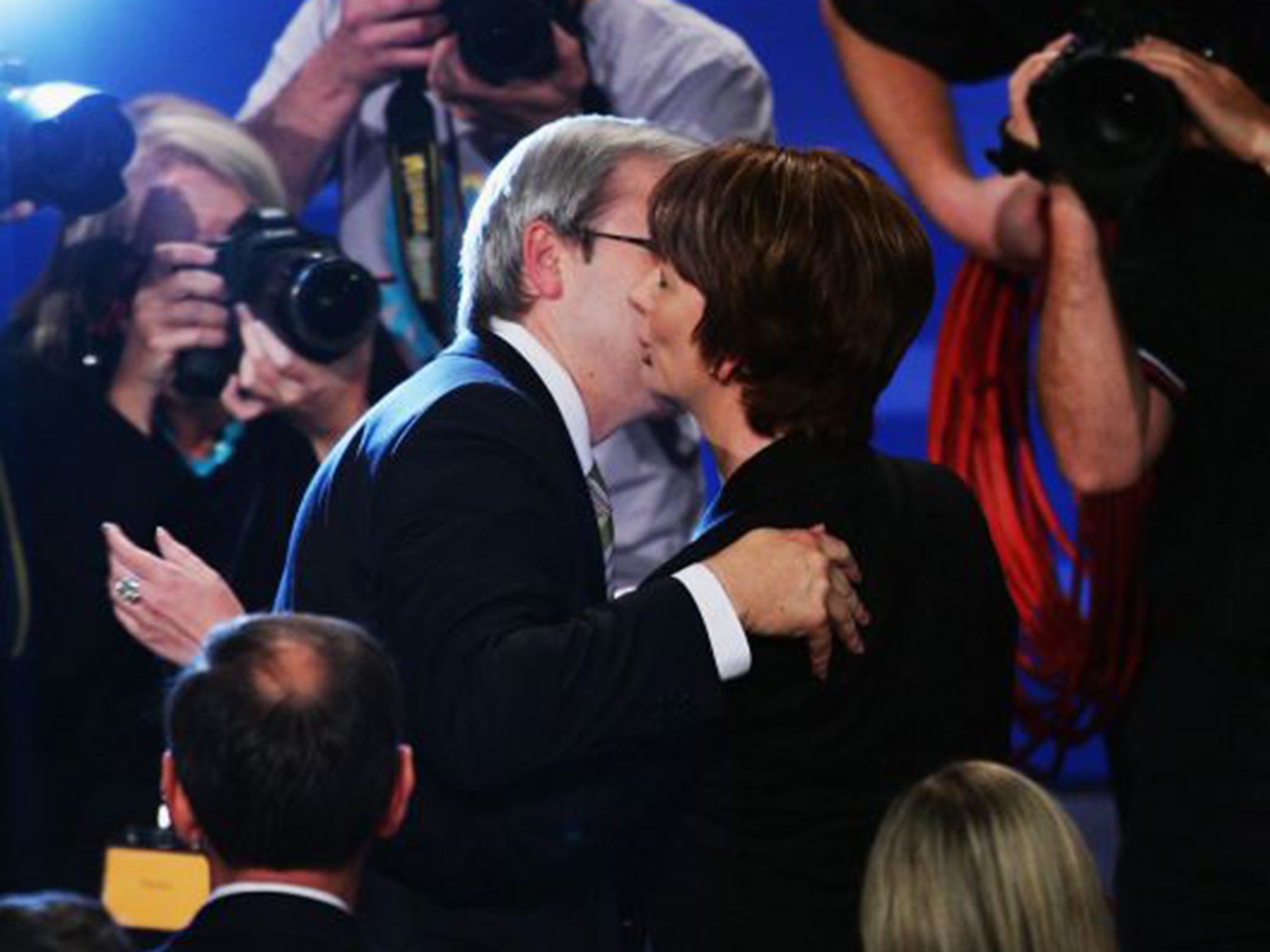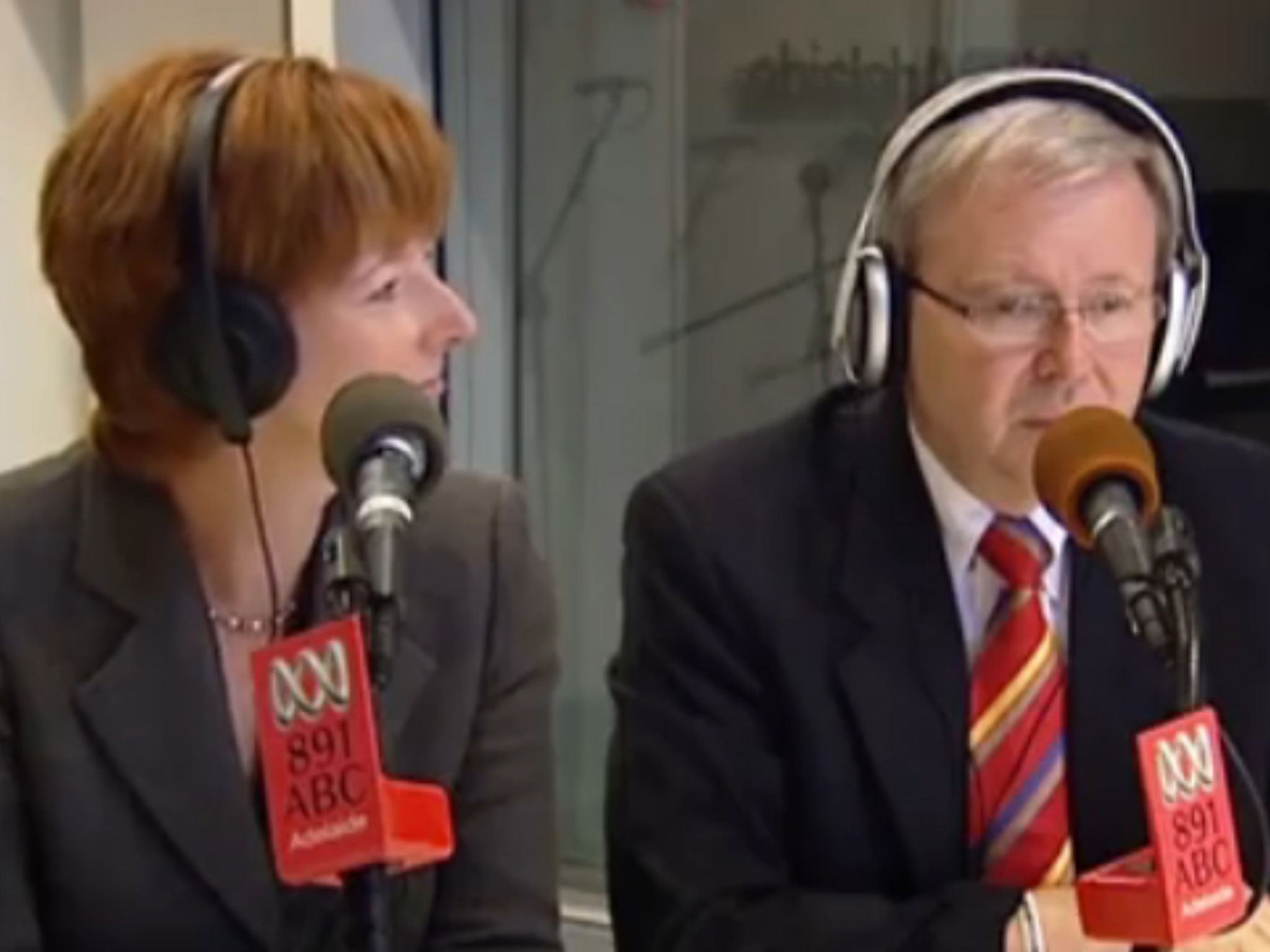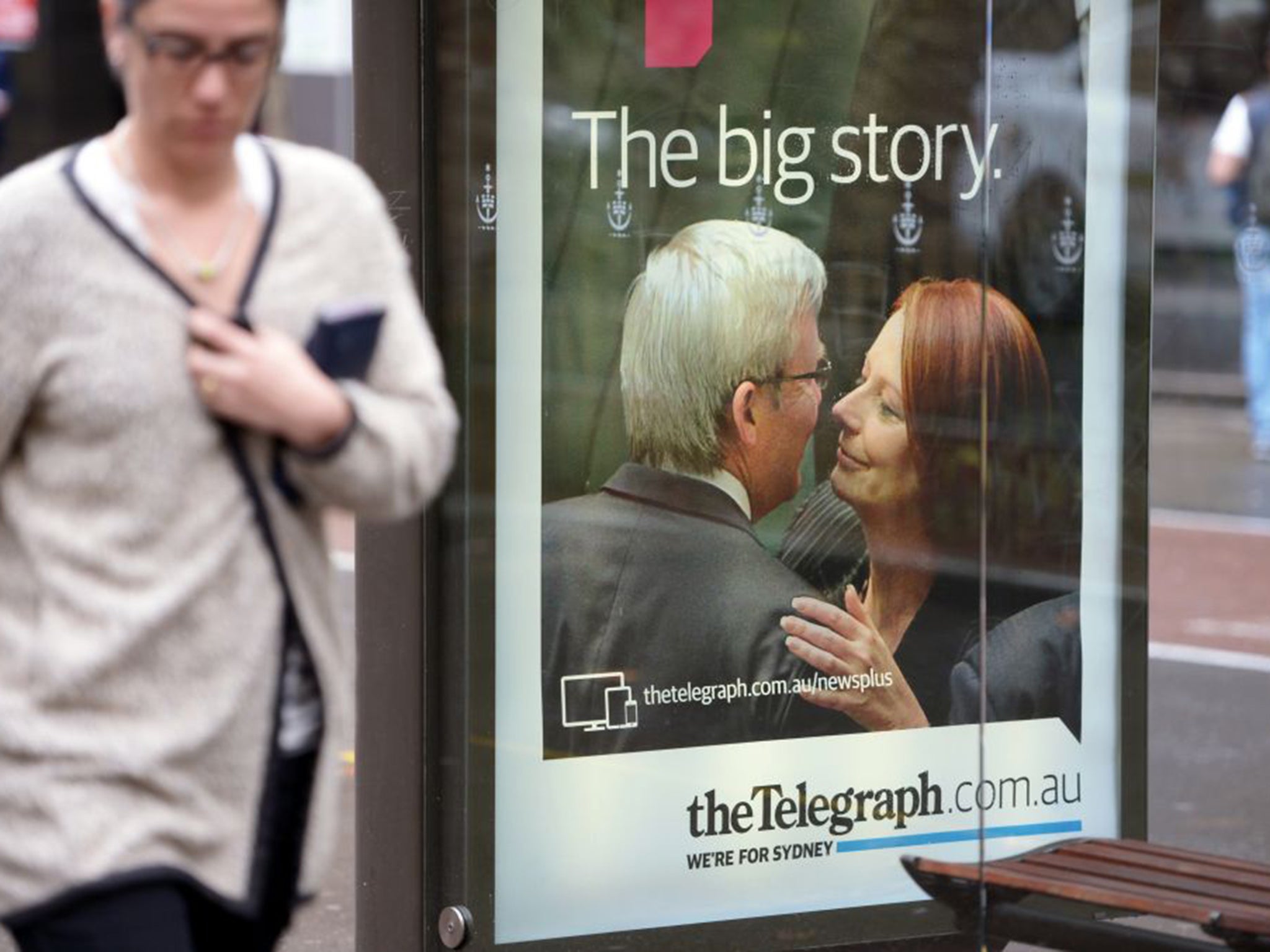Australia's 'Killing Season': Documentary series opens up the poisonous political feud between Julia Gillard and Kevin Rudd
Julia Gillard and Kevin Rudd were once Labor’s dream team – but as the party gained power, things turned sour. Now the gloves have come off for both former Prime Ministers in a documentary that has captivated Australia

Your support helps us to tell the story
From reproductive rights to climate change to Big Tech, The Independent is on the ground when the story is developing. Whether it's investigating the financials of Elon Musk's pro-Trump PAC or producing our latest documentary, 'The A Word', which shines a light on the American women fighting for reproductive rights, we know how important it is to parse out the facts from the messaging.
At such a critical moment in US history, we need reporters on the ground. Your donation allows us to keep sending journalists to speak to both sides of the story.
The Independent is trusted by Americans across the entire political spectrum. And unlike many other quality news outlets, we choose not to lock Americans out of our reporting and analysis with paywalls. We believe quality journalism should be available to everyone, paid for by those who can afford it.
Your support makes all the difference.It’s a tale of power, ambition and betrayal, with all the skulduggery and intrigue of a high-stakes political thriller. It’s not House of Cards that has transfixed Australians in recent weeks, however, but a real-life drama: the story behind a poisonous political feud that saw two Prime Ministers knife each other.
The Killing Season is a three-part television documentary about the tumultuous recent era when Australia was governed by Kevin Rudd, then Julia Gillard, then Mr Rudd again – and when the Australian Labor Party tore itself to pieces as relations between the once-close colleagues disintegrated into mutual loathing.
As well as throwing fresh light on a bizarre period when “people went to bed with one Prime Minister and woke up with another,” as one key player puts it, the series has reopened wounds that had barely healed and revived festering animosities.
It has also, to the glee of Tony Abbott’s conservative government, raised questions about the integrity of the man who is now the Labor leader, Bill Shorten.

It is almost exactly five years since Mr Rudd was deposed by his “loyal deputy” in a late-night coup, and almost exactly two years since he seized the office of Prime Minister back from Ms Gillard. In Canberra, they call it the “killing season” – the final fortnight before federal parliament disbands for the long winter break.
In the series, made by an award-winning television journalist, Sarah Ferguson, both former Prime Ministers open up to an unprecedented degree as they vie to have their rival – and often wildly diverging – versions of events written into history.
Mr Rudd recalls how his Welsh-born deputy strode into his office in June 2010 “ice cold, with absolute determination in her eyes”, and informed him she planned to challenge him for the Labor leadership. Only minutes before, according to him, they had shaken hands on a deal to give him more time to improve the party’s poll ratings.
It was “pretty gut-wrenching... something which tears open your heart,” he says, adding: “To recall those difficult times is just painful. And the thing that is most painful through it all is just the active sense of betrayal – betrayal by people who were very close to you... people who you thought you could trust.”
Soon afterwards, as Ms Gillard began campaigning for the 2010 election, damaging leaks spread the claim that in Cabinet meetings she had opposed Labor-friendly policies such as pension increases. “Nothing,” she tells Ms Ferguson, “could lead you to expect... bastardry of that magnitude.” (Mr Rudd has denied being the leaker.)
Although she is the more composed of the pair, it is clear that both are still seething with anger and thirsting to settle scores. “Julia always had a bit of a problem with the truth,” Mr Rudd declares at one point. Ms Gillard speaks of Mr Rudd’s “psychological problems” and his need for “applause and approval”.
Yet it all began so promisingly – if rather brutally. Deeming Labor’s then leader, Kim Beazley, incapable of ousting long-time conservative Prime Minister John Howard, Mr Rudd and Ms Gillard toppled him in 2006.
They were hailed as Labor’s “dream team” – he a bookish, Mandarin-speaking former diplomat and devout Christian, she an atheist and former trade-union lawyer. He had the support of the right of the party, she the left. If not a love match, it was a “marriage of convenience”, as one senior Labor figure called it.
A brilliant election campaign swept Labor to power in 2007. Mr Rudd won plaudits for apologising to the “stolen generations” of Aboriginal children forcibly removed from their families. He was widely praised for his handling of the global economic crisis of 2008, which enabled Australia – alone among developed nations – to avoid recession.
At the same time, though, character flaws were emerging. Mr Rudd had a foul temper. He was, reportedly, rude to senior bureaucrats and made his staff work punishing hours. He reduced an air stewardess to tears because his favoured in-flight meal was not available, and he had a tantrum, allegedly, while visiting Australian troops in Afghanistan because they could not find a hairdryer for him before a photo-shoot.
At home, there were whispers that his government was “dysfunctional”. Abroad, Mr Rudd’s diplomatic experience was not always evident. Frustrated by the lack of headway at the 2009 climate change conference in Copenhagen, he described Chinese officials as “ratfuckers”.
Amid policy missteps and indifferent polls, Ms Gillard – backed by key Labor power brokers – made her move. Once in power, however, Australia’s first female Prime Minister faced almost perpetual internal dissent – fanned, she believes, by Mr Rudd. In June 2013, Mr Rudd regained the leadership; that September, he lost the election.

Now both are out of politics, and Labor is trying hard to portray those unedifying events as “ancient history”. One person, however, was influential in both unseatings: Mr Shorten. Although he declined to be interviewed for the series, an unflattering picture of him emerged.
Ms Ferguson, whose gripping series achieved record ratings for the Australian Broadcasting Corporation, sees “echoes of great tragedy from cinema and theatre” in the story. Shakespeare, she believes, would have loved it. “He’d have sucked on his pipe and slapped his thigh,” she says.
Tragedy or soap opera? Whichever, it horrified and enthralled the nation, and it also changed politics in Australia. Elected Prime Ministers are now fair game. Barely a year after his convincing election victory, Mr Abbott only narrowly saw off an attempt by his own party to replace him.
Despite his failure to wow voters, Mr Shorten’s position appears secure, at least for now – but possibly only because of a change of rules (instigated by Prime Minister Rudd, second iteration) that gave grassroots Labor members equal say to politicians in leadership contests.
Were it not for that rule change, some believe, Mr Shorten, too, could have become a victim of the “killing season” – the one that has just ended.
Join our commenting forum
Join thought-provoking conversations, follow other Independent readers and see their replies
Comments